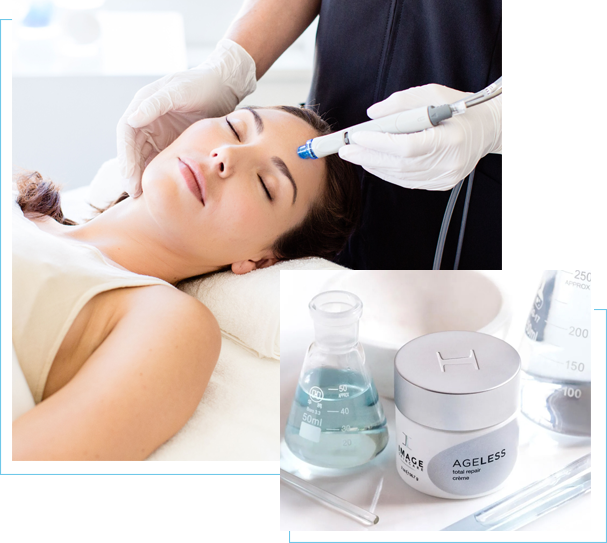How common is Adult Acne?
If you continue to be troubled by acne, you are not alone. Everyone thinks of is as a teenage disease because 80-90 percent of teenagers have acne at some point. But the reality is that 30% of adult women and 20% of adult men have acne, and about 20% of adults with acne never had it as a teenager.
What Causes Adult Acne?
- Excess oil production. Sebaceous glands in our skin make an oily substance called sebum. Sebum helps keep our skin moist and helps protect the skin, but when there is too much of it, pores get clogged which attract bacteria and become inflamed.
- Hormones. Certain hormones, testosterone and other androgens in particular, drive an increase in sebum production. Many women have flares of acne with their periods, with menopause and with pregnancy. In some cases this is because of an excess of hormones, but in most cases the skin is hypersensitive to hormone levels.
- Stress. There is nothing that stress makes better. Lots of patients report flares of acne with stress. Lots of patients also report more stress with flares of acne.
Comparing Adult Acne and Teenage Acne:
Teenagers tend to start off having primarily comedonal lesions (whiteheads and blackheads) and then my progress to have more inflammatory lesions and cysts. Adults tend to have fewer lesions overall, but their lesions tend to be long lasting, deeper inflammatory lesions.
In teenagers, there can be vicious ridicule associated with acne and it has significant impacts on self-esteem and school performance itself. For adults, it continues to have a major impact on quality of life and is associated with higher rates of anxiety, depression, and suicide as well as effects on wages and employment.
How Is Adult Acne Treated?
Most acne medications were developed for teenagers who tend to have much oilier skin that adults. Many of the gentler medications that adult skin can tolerate are brand name medicines and insurance companies often refuse to cover them until you’ve proven that the harsher, generic medications set your skin on fire. There are a large number of treatment options available, however.
Your at home regimen for adult acne:
It is essential that you treat your skin gently. Harsh cleansers have a tendency to dry the skin out and make it harder to tolerate topical treatments. Anything that is abrasive and irritating will often add to the inflammation that is present and make things worse as well.
Do use a gentle cleanser like Purpose or Cetaphil daily. Using your hands to wash your face in the shower is ideal.
Avoid cleansers that have beads or granules or any of the new power scrub brushes that look like a giant Oral-B toothbrush
Do wash away makeup or sweat from sports as soon as you can. Many people are fine washing just once a day, but if you wear makeup, wash it off before bed, and if you work out and get sweaty, wash your face when you’re done.
DO NOT seek out the highest percentage benzoyl peroxide product the world has ever seen. In studies, 10% doesn’t work any better than 2.5% but causes an awful lot more irritation.
Don’t waste your time obsessing over diet. Out of the hundreds, if not thousands of studies done on diet and food, the only associations that have been found are 1) drinking more milk might make your acne 20% worse. 2) following a low glycemic index diet might make your acne 20% better.
Cleansers: Cetaphil and Aquanil are the most gentle. Avoid too-strong gels and products containing beads or granules, which are abrasive and can irritate and worsen sensitive skin.
A prescription plan for Adult Acne
There are MANY options out there. It often takes a bit more trial and error to find the right solution for adults, but the acne treatment menu includes:
Topical Retinoids: This includes topical medicines like Differin (adapalene), Retin-A (tretinoin), and Tazorac (tazarotene).
Topical Antibiotics: This includes a wide variety of medicines, many of which are now available in combination with other topical medicines to help simplify your regimen
Oral Antibiotics
Hormonal Treatments: Estrogen therapy or a medicine called spironolactone can be very effective for adult women with acne.
Low Dose Accutane: When all else fails, there is now very good evidence that low dose accutane or isotretinoin can be very useful for some adults with acne. When taken in small doses, most of the side effects of the medicine disappear, however it is still critical for women to not become pregnant while on the medicine.



